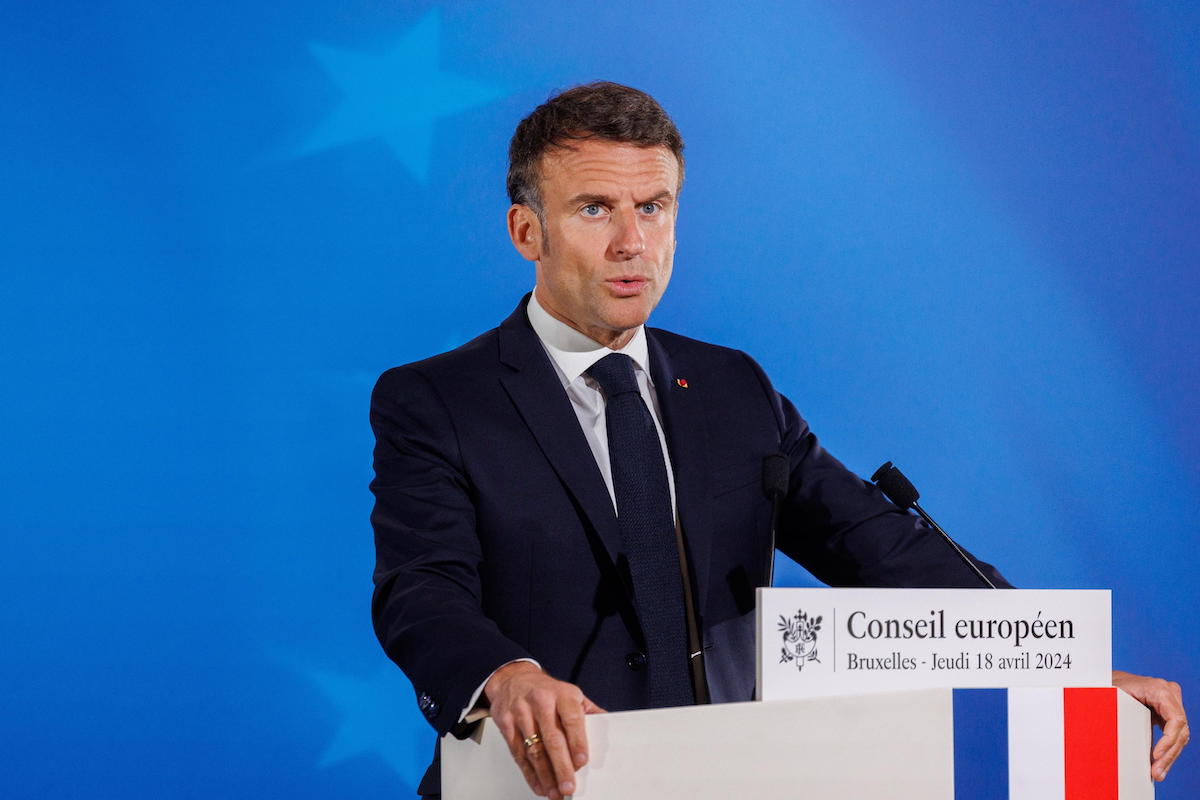There is a fundamental reason if in each European election we fear the failure of the main protagonists – the voters – and each time someone dares to mention in Brussels the urgency of reforming the European treaties, we sweat coldly: there is 19 years ago, the “big step” that the EU was supposed to take was rejected by two popular votes. It was May 29, 2005 and 54.67% of French people unequivocally rejected the draft European Constitution. Three days later, the second blow came from Holland: an even more resounding “no” cast in the ballot boxes by more than 61% of citizens. The European Constitution, carefully prepared for years by European leaders, crashed in three days. Thus began the long, never-healed crisis of the European project. And the most painful thing for everyone was that the final blow came precisely from France, the founding country and theoretically equipped with all the necessary qualifications to guide this process. Two decades later, many signs suggest that France – home to many of the values on which the EU is founded – is once again suffering from a subtle “Europe sickness”. This risks dehydrating the European plant from the roots. The data was compiled by the Eurobarometer published a few days ago – the last continental survey before the European elections in June. 1) The French see more gray than others. The country led by Emmanuel Macron is the only country in which there are more pessimists about the future of the EU than optimists (52 against 42%). 2) The French have a very bad idea of the European Parliament: only 27% have a positive image of it, compared to an average of 41% of their fellow EU citizens. A relief all the more surreal as the European Chamber is based just on the other side of the Alps, in Strasbourg. 3) Quite coherently, the majority of French people (53%) declare themselves disinterested in the European elections in June, and 30% frankly admit to not knowing when they will take place – a data which is also decidedly more negative than in the rest of the country.
Turn right
ll feeling French public opinion on the EU overlaps with voting intentions monitored almost daily by national polling institutes. And the political trend is emerging very clearly: the majority of French people are preparing to teach Emmanuel Macron a good lesson during the elections. The National Rally, the former National Front, has been on the rise for months, which, under the leadership of Marine Le Pen, after continual defeats in the presidential elections, changed its name, its political identity (in part) and now even his face. Because at the top of the lists for the June vote is not the historic leader and daughter of the party's founder, but the rampant Jordan Bardella, born in 1995. According to the latest Ipsos survey, the RN could bring together almost a third voices. votes in June, an exorbitant rate of 32%. The electoral bloc led by Renaissance, Macron's party, would literally double, stopping at 16%. With the serious risk, for the key party of the government, of even slipping into third position, if the trend towards the recovery of the center-left continues: the list formed by the Socialist Party and Place Publique, under the leadership of the philosopher who has become – the politician Raphaël Glucksmann, is now given 13%. Followed at around 7% by the Green List and two other political proposals which hit Macron very hard: the left-wing France Insoumise (7%) and the Reconquest of Eric Zemmour from the right (6.5%).
The Elysée bet
Enough to ring the alarm bells at the Elysée. Macron, who, aware of the country's extremely harsh climate, had already attempted a reshuffle at the start of the year by replacing the exhausted Elizabeth Borne at the head of government with rising star Gabriel Attal, is preparing to respond with his favorite weapon: a great speech to the nation. Better yet, across Europe. On Thursday April 25, the French president will deliver a speech on Europe at the Sorbonne which promises to be an attempt to respond in quick succession to the signs of distrust and pessimism from his compatriots. The continuation, from a certain point of view, of the programmatic speech on the future of the EU that he delivered in this same university lecture hall in September 2017. At the time, Macron had just been elected leader of France, and he did not hide his dream of actually becoming Paris at the wheel of all of Europe. Today, he returns to the Sorbonne as president for his second and final term, on the defensive at home, although still highly appreciated abroad. The bet is that the speech will resonate with a discouraged electorate, at least to prevent his party from finishing third.
Disease of Europe or Macron's disease?
However, precisely in light of this dynamic, not everyone is convinced that what the French are denouncing is truly a “European disease”. “Yes and no”, reflects a Open Marc Lazar, professor at Sciences Po and great expert on French (and Italian) politics. “It is true that the French are critical and suspicious of the EU, but at the same time they remain linked to the EU, and even more so to the euro. And they want a European defense.” This is not a contradiction, explains the political scientist, because the EU “remains the accepted horizon, to the point that no one talks about Frexit anymore, while the discontent focuses on questions concrete things like health, purchasing power, ecological transition”. And then there is the other big elephant in the room: the head of the Elysée. of the Fifth Republic, De Gaulle, Mitterrand, Hollande, many encountered strong opposition, but the opposition against him is truly a personal question, centered on the character: young, brilliant, considered arrogant and detached from everyday life. According to Lazar, it is especially in the rural world and in the small towns which constitute a significant part of France that we must look for this “almost physical repulsion for this big bourgeois”: a visceral rejection of Macron which fueled the protests of the yellow vests first, then against pension reform. This without taking anything away however, reminds Lazar, of the undeniable attractiveness of the young Bardella, who after the European Championships will very probably open a real question to the RN: if he really collected more than 30% of the votes, what will happen does he? What will be the relationship between him and Marine Le Pen? While from a European point of view, the post-electoral question to follow will be another, also entirely internal to the right: how will the relations between the two great women of reference in this galaxy, Le Pen and Giorgia Meloni, be structured? ?


